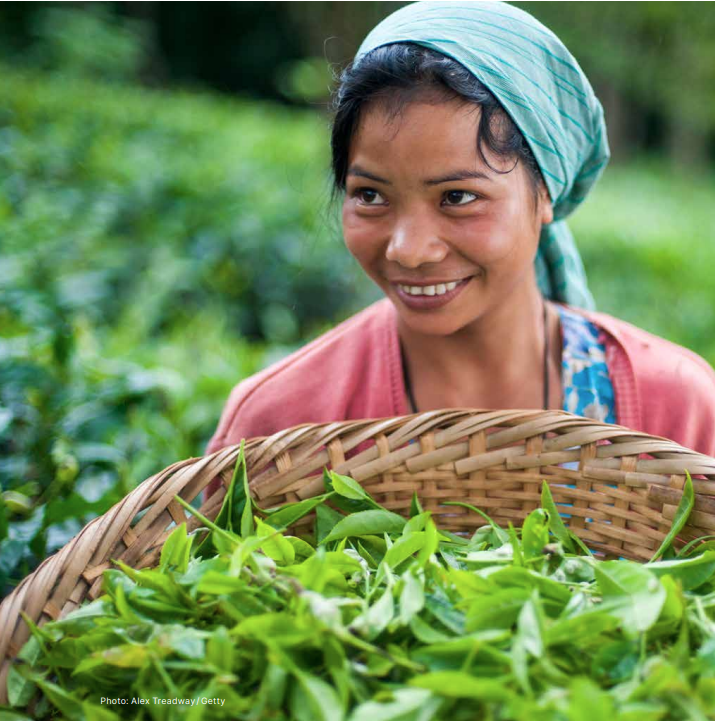What do more than 900 youth across 89 countries envision when they think about the future? Young scientists from Stockholm Environment Institute (SEI) and Council on Energy, Environment and Water (CEEW) joined hands to find out.
Together with the Indian think tank Council on Energy, Environment and Water (CEEW), we proudly launch the "Charting a Youth Vision for a Sustainable Future" report. The report offers a science-based youth input to the talks at the international "Stockholm+50: a healthy planet for the prosperity of all – our responsibility, our opportunity" UN meeting from 2–3 June 2022.
The authors of the report were not yet born when delegates first met in Stockholm in 1972 for the Only One Earth UN Conference on the Human Environment, where countries came together to jointly take responsibility for protecting and improving the environment while ensuring equity of human development.
Sadly, the better world envisioned 50 years ago has not yet come to pass. Drastic changes are needed now more than ever before. This report articulates a vision for a future that captures the aspiration, determination and solidarity of young people, to realize a healthy planet for all.
The authors have considered the latest science, identified policy gaps and studied systemic challenges to formulate a concrete vision for a healthy planet for all by 2030. The report offers policy suggestions for accelerating implementation and overcoming roadblocks in pursuit of this vision and integrates findings from a global online survey conducted by 1050 young people aged 18–30 from 89 countries.
Over the past 50 years, the human population and its carbon emissions have more than doubled. We have entered an era where humans have become a driving force that changes the planet as we exceed our ecological footprint as a species. More than half of the respondents to the survey for this report said that they feel anxiety due to climate change.
The Covid‐19 pandemic has shown the vulnerability of our economies, shed light on the costs of delayed action and has had disproportionate impacts on different groups of people, both economically and socially. It taught us the importance of cooperation through global solidarity, the importance of acknowledging crises in their early stages to avoid costly delays of inaction, as well as the importance of eliminating social and economic inequalities that deepen and are deepened by crises. These lessons can be applied to the intertwined challenges we face, with implications for all as well as specifically for youth today.
The youth vision consists of four parts: solidarity among all people, living with nature, equality for all, and health and well‐being for all. Achieving these ends requires systemic change on a massive scale, the systems in which we live need to address and remove inequality from many perspectives: intergenerationally, gender‐related, racism, colonialism and more.
Rather than economic growth, we find that community-focused living, education and health are appropriate metrics of the prosperity of a country. It should further be measured by its "natural capital" like the quality of its air, soil and water, biodiversity and integrity of ecosystems and land use, as countries with functional environmental ecosystems are more resilient to the impacts of climate change and can provide higher standards of living to their inhabitants. Our vision also requires hearing the voices of youth in the decisions taken now that will lay the groundwork for our future.
Half of the global population is under the age of 30. Young people currently lack an adequate voice in economic and political matters and yet they – we – have led change for equality and a better world. We can capitalize most obviously on the global youth movement against climate change, which needs to be amplified. The solutions and actions young people bring to the table can be shared and scaled up. We need action carried out now in this decade to set our course for the next 50 years.
Youth need more opportunities to engage in different forums and voice their concerns. Youth need to be involved in policy development processes and their voices legitimized in mainstream policymaking.
Download the report here.
Stockholm Environment Institute is an international non-profit research and policy organization that tackles environment and development challenges. We connect science and decision-making to develop solutions for a sustainable future for all. Across our eight centres in Europe, Asia, Africa and the Americas, we engage with policy processes, development action and business practice throughout the world. www.sei.org @SEIresearch @SEIclimate

